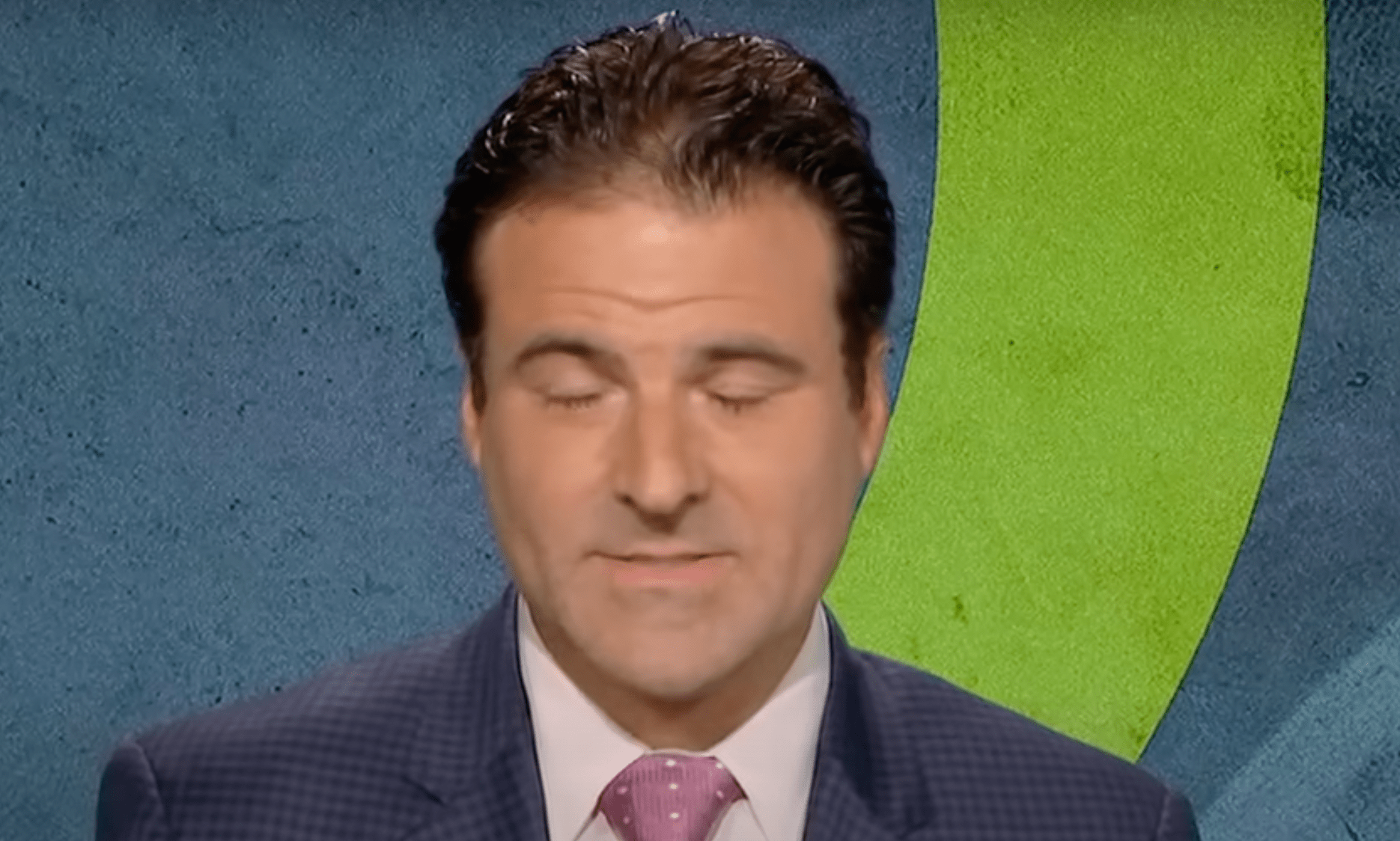It's long been understood that Darren Rovell is a gross hack in possession of a rotting brain that can only understand the world in terms of how much something is worth or could be worth. His worldview is simple: The more money something costs or makes or sells for, the better that thing is. Rovell has done quite well for himself over the years by operating accordingly, endlessly humping garbage products and companies with wide eyes, impervious to any sense of shame. Precisely because this is Rovell's reputation—an incurious knob who sides reflexively with money and power—it would be difficult to imagine him doing anything that would result in him being held in lower regard than he already is. Yesterday, though, Rovell found a way!
"Calling me a racist is cute," he wrote on Monday in a since-deleted tweet in response to someone who suggested that Rovell's whining about college football players getting paid under new NIL deals had racist implications. "On this day especially. I have one of the largest Martin Luther King Jr. collections in the world and some of my closest friends are Black."
A white person holding up their supposed black friends as shields against charges of racism is so gross it's practically parody at this point. Rovell doing so in the same breath as bragging about owning items from MLK Jr.'s life makes it even worse: He has black friends, you understand, in the same way he owns items from MLK Jr.'s life. In Rovell's world, anti-racism doesn't require any work or sacrifice or self-reflection, just lots of money to buy some stuff you can point to as evidence of your imagined goodness.
Later, in a conversation on Twitter with Miami Hurricanes fans, Rovell expanded on how hoarding bits of history from the Civil Rights era makes him not racist.
Here’s Darren explaining his MLK (and Rosa Parks) collection to Canes fans with some additional comments from him on the matter. pic.twitter.com/lBV3LUEPsk
— Kevin Clark (@bykevinclark) January 18, 2022
"I have over nine MLK signed items. I am a humongous fan of what he's done. And over the last seven years I've collected a lot of things," Rovell says. "It's not only MLK, it's a lot of Black history. I own a Rosa Parks signed NAACP card. So it was pretty shocking today how I was called racist when I am a student and lover of Black history. I never expected the reaction that I got today. [The moderator of the chat says, "Hm."] I'm sorry. I'm sorry if people think that a white man can't enjoy Black history. I'm sorry. I'm sorry. I really am. I'm sorry if people think that a white man can't love Martin Luther King, but to me that seems pretty counterintuitive."
There's a heavy pause, after which Rovell yells, "You got me?" To which the moderator responds, perfectly, on behalf of all listeners: "Yeah, they got you."
Imagine giving money to the people who jailed Martin Luther King, Jr. and bragging about it on MLK Day. These aren’t autographs. These are signature he had to use to get correspondence while wrongfully imprisoned. This is disgusting @darrenrovell pic.twitter.com/PwyR2gENAf
— David Dennis Jr. (@DavidDTSS) January 18, 2022
Rovell also tried to explain why, if he does indeed understand the importance of the black history he possesses, he refuses to donate it to a museum. He seems fundamentally unable to conceptualize value divorced from literal ownership.
Why? Why can’t they just display it. Why do they have to own it when I bought it?
— Darren Rovell (@darrenrovell) January 17, 2022
It's not an overstatement to say Rovell is one of the stupidest public figures out there, but he isn't alone in thinking symbolic action equates to justice or change or restorative practice. Just this month, Maya Angelou became the first black woman to be featured on a quarter, a move that was hailed as progress by good liberals. But as Brittney Cooper wrote last year, when Biden re-announced an Obama administration initiative to put Harriet Tubman on U.S. currency, putting a black woman's face on money isn't progress.
I know in a country that worships at the altar of capitalism–an economic system made possible by the free Black labor procured through the Transatlantic slave trade–a Black woman’s face on our currency seems like the highest honor we could bestow. But what a stunning failure of imagination. Putting Tubman on legal tender, when slaves in the U.S. were treated as fungible commodities is a supreme form of disrespect. The imagery of her face changing hands as people exchange cash for goods and services evokes for me discomfiting scenes of enslaved persons being handed over as payment for white debt or for anything white slaveholders wanted. America certainly owes a debt to Black people, but this is not the way to repay it.
Rovell is useful, at least, in that he's a handy stand-in for white America as a whole: Defensive, pathetic, and ready to throw a tantrum if counterproductive efforts to be an "ally" are met with anything other than enthusiasm.






